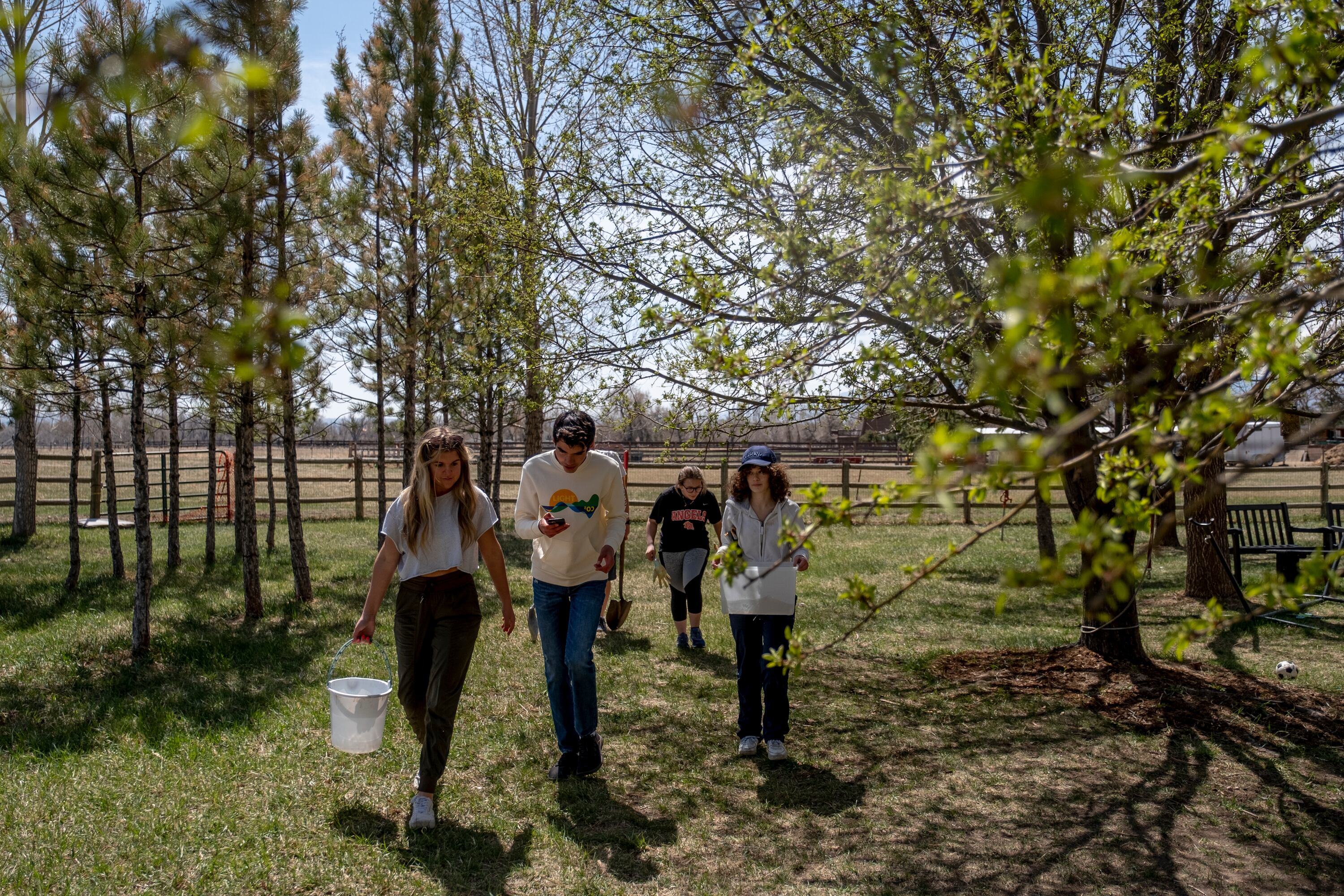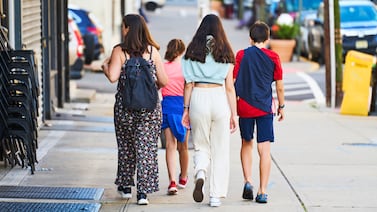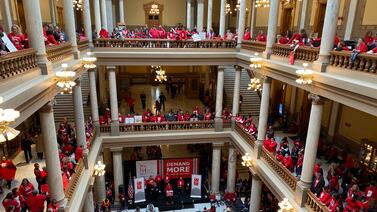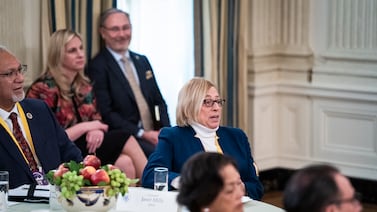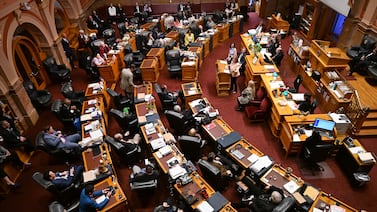Sign up for Chalkbeat Colorado’s free daily newsletter to get the latest reporting from us, plus curated news from other Colorado outlets, delivered to your inbox.
Climate change and the link between burning fossil fuels and rising global temperatures would be required to be taught more explicitly in Colorado science lessons under a change being considered by the State Board of Education.
The proposed changes, which come as the Trump administration moves to weaken federal climate regulations and state efforts to fight global warming, elicited pushback from the four Republican board members. They criticized the revisions for depicting the downsides of fossil fuels but not of other forms of energy, such as wind turbines that kill birds.
“My initial reaction from reading this is that we’re definitely zeroing in on one form of energy that is opposed by one side of the political aisle and not the other,” said Kristi Burton Brown, a Republican who represents the 4th Congressional District.
She pointed out that some students’ parents work in the oil and gas industry, which she said is “huge” in Colorado. “Considering our state, considering our districts, to present that to kids as only negative and not touching other forms of energy, I would have a big problem with,” she said.
Meanwhile, a Democratic board member described the proposed changes as “a few tweaks.”
Colorado’s academic standards outline what students should learn in subjects ranging from reading and math to music and dance. The State Board of Education is required to review each set of standards every six years. Revisions meant to make the social studies standards more inclusive of diverse racial groups and LGBTQ+ people proved controversial in 2022.
A group of students has been advocating to include more information about climate change in Colorado’s science standards. The State Board voted in December to direct the state education department to present recommendations for how to do that.
State officials suggested eight revisions to the 172-page standards. One revision would change language in the standards directing middle school students to explore “evidence of the factors that have caused the rise in global temperatures” to say they should research “evidence of how burning fossil fuels releases greenhouse gases that cause rising global temperatures.”
Another proposed revision would direct high school students to “evaluate or refine a technological solution that reduces greenhouse gas emissions and other human pollutants.” The standards currently say that students should evaluate a technical solution that reduces the impacts of human activities on natural systems — without calling out greenhouse gas emissions.
Other proposed revisions don’t mention climate change. A revision to the elementary science standards would require that students learn about Colorado weather patterns instead of generic “typical weather conditions expected during a particular season.”
Two students spoke in favor of the proposed revisions at Wednesday’s State Board meeting. Several others submitted written comments in support.
Aisha O’Neil, a freshman at the University of Colorado Boulder, called the proposed revisions “a wonderful step in the direction toward the climate education we advocated for.”
“Yet they do not go nearly far enough to create an education that will fully prepare our youth for tomorrow’s world and allow students to find hope in the current crisis,” said O’Neil, who founded the Good Trouble Climate Network, a group of high school sustainability clubs across the state.
State Board members thanked the state education department for working with students on the revisions. Department staff said they also reviewed academic standards related to climate change from New Jersey and California, as well as a climate literacy guide for educators from the U.S. Global Change Research Program, which could be targeted for cuts by President Trump.
But Republicans on the board said the proposed revisions were biased and one-sided.
“There should be at least some inclusion of the negative consequences of alternative energies,” said Steve Durham, a Republican who represents the 5th Congressional District.
“For example, the one that bothers me the most is windmills kill somewhere in the neighborhood of at least a million birds a year,” he said. “Absent including some of those things, we have to conclude that these are not standards but indoctrination.”
Sherri Wright, a Republican who represents the 3rd Congressional District, said the downsides of solar energy also warrant a mention in the standards.
“I’ve been talking to a lot of companies that do solar energy,” said Wright, who lives in Cortez. “I kind of thought I wanted to do a solar farm. And they told me it was not a good thing if I plan to use my land later. So that’s destroying the environment.”
But Lisa Escárcega, a Democrat who represents the 1st Congressional District, said the revisions only touch a tiny part of the standards and don’t require educators to use the exact words or phrases in the standards when they teach their lessons.
“This is not a curriculum,” Escárcega said. “These are just ideas and standards we are to teach to and to meet. Treating it like this is the book they’re going to get is not correct.”
The Colorado Department of Education launched a survey Wednesday to collect feedback on the proposed revisions. The survey will be open for two weeks, and department staff said they will present a summary of the results at the State Board meeting in May.
The nine-member board of four Republicans and five Democrats is set to vote on the revisions at its June meeting, department staff said.
Melanie Asmar is the bureau chief for Chalkbeat Colorado. Contact Melanie at masmar@chalkbeat.org.

